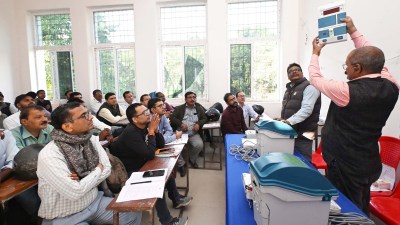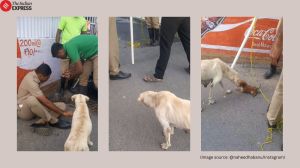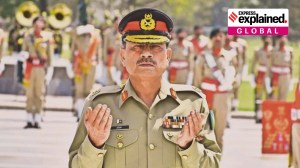Massacre at Wandhama
There was a method in the massacre of 23 Kashmiri pandits at Wandhama on Sunday night. The idea was to drive home the message, on the eve of...

There was a method in the massacre of 23 Kashmiri pandits at Wandhama on Sunday night. The idea was to drive home the message, on the eve of the country’s Republic Day, that Kashmir is still very much a disturbed territory, no matter how many tricolours are unfurled in Srinagar; no matter if the state’s first National Winter Games is to open at Gulmarg on January 28; no matter that 1997 recorded the lowest number of militancy-related killings in the last seven tragedy-filled years of mindless militancy perpetrated by Pakistan-trained mercenaries. The Kashmiri pandits in the state and elsewhere are understandably extremely agitated over the incident, which is the second major attack on their community after the Sangrampur killings in March last year. Theirs has been an unending saga of despair, with large numbers of them living as refugees in their own state or in the camps of the Capital. They have called for a boycotting of elections to demonstrate their bitterness and anger. But it is precisely such aresponse that the perpetrators of the carnage desire.
After all, if the democratic processes in the state are disrupted, it would testify to the world the hollowness of India’s claims that normalcy has largely been restored in the state. But history has shown, time and again, that the ballot has the power to silence the bullet. It is therefore extremely important that the people of Wandhama, along with people elsewhere in the state, fearlessly exercise their franchise on March 7 when the state is scheduled to go to the polls. There had been 5,041 incidents of terrorist violence in J&K in 1996, but their number came down quite significantly after a democratically-elected government was put in place in September 1996. The year 1997 recorded 3,420 such incidents. Yet there is really no room for complacency.
Sunday night’s killings reveal that the forces of terrorism are as potent as ever in the state, with fundamentalist groups proliferating across the border. The Pakistan magazine, Herald, recentlyinvestigated into the affairs of one such group which went by the name of Lashkar-i-Taiba, or the Army of the Pure. Its leader admitted the loss of 350 guerillas in covert operations in J&K. Organisations like the Lashkar-i-Taiba often target vulnerable groups in the most despicable and cowardly fashion. It is only by local communities coming together, jointly resisting them and exposing them for what they are, can the state hope for peace. The one heartening aspect of the Wandhama incident was the response of ordinary Kashmiri Muslims to the carnage. Clearly, the tragedy touched every man, woman and child here. According to eye-witness reports, women beat their breast in anguish, grown men broke down and sobbed, the whole community brought wood for the funeral pyres. It is precisely in such spontaneous public responses that J&K’s redemption lies. A people united can ultimately defeat the cruel and cynical efforts to divide the state along communal lines and destroy it.



- 01
- 02
- 03
- 04
- 05



























